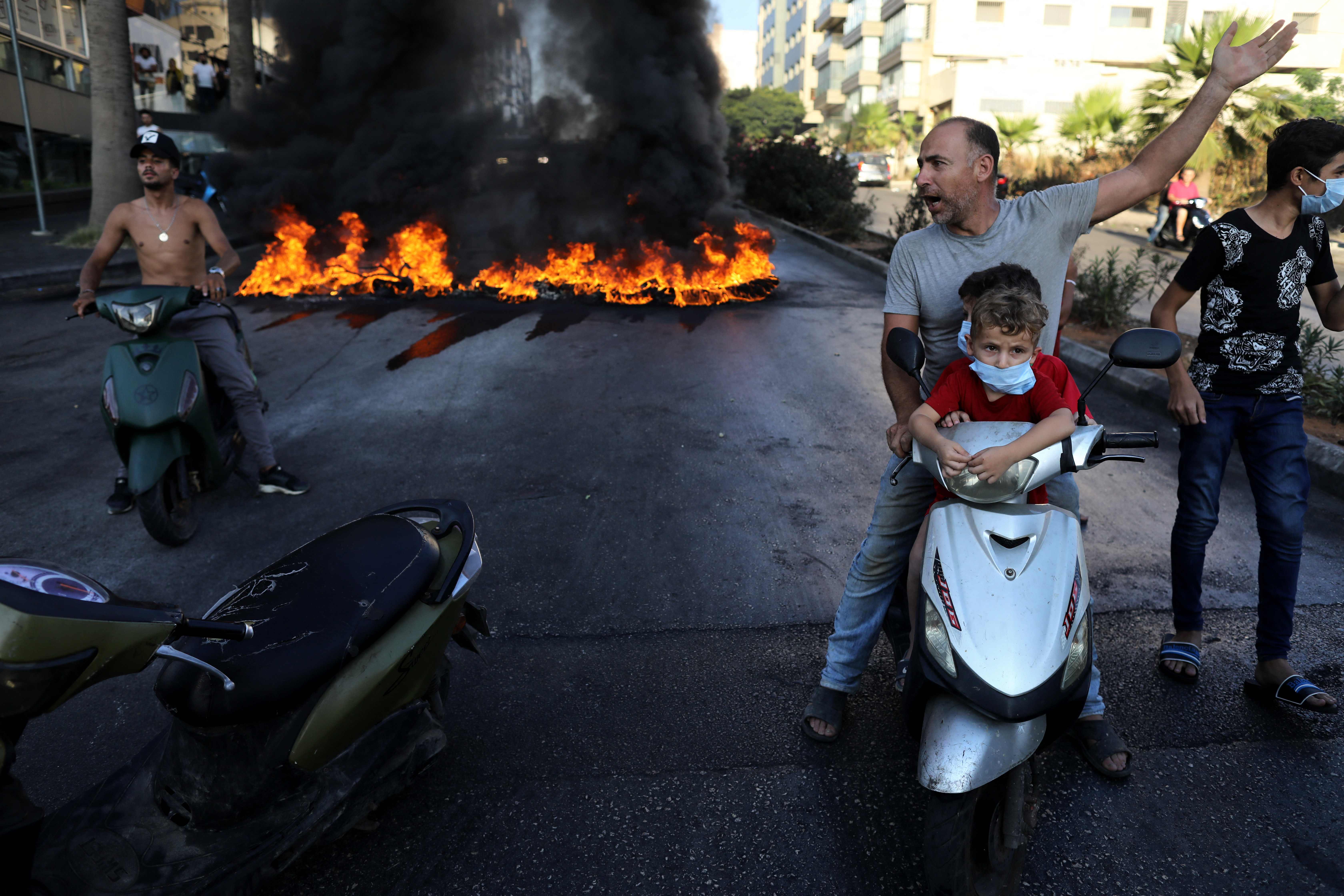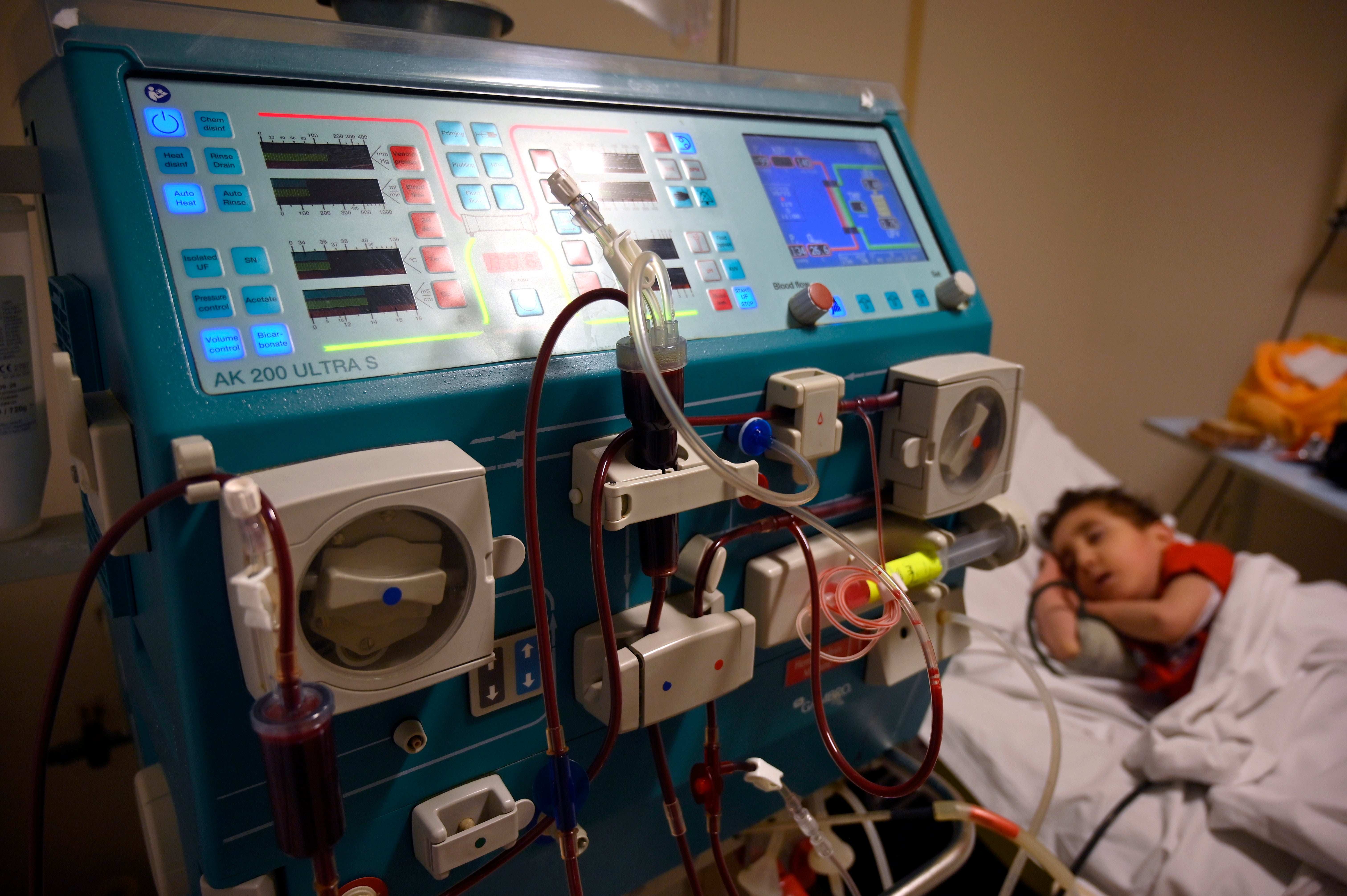Failed state: Nearly 80 percent of households in Lebanon do not have food or money to buy food, warns UN
Children are being hit hardest by one of the worst economic collapses in recent history, says the report

Your support helps us to tell the story
From reproductive rights to climate change to Big Tech, The Independent is on the ground when the story is developing. Whether it's investigating the financials of Elon Musk's pro-Trump PAC or producing our latest documentary, 'The A Word', which shines a light on the American women fighting for reproductive rights, we know how important it is to parse out the facts from the messaging.
At such a critical moment in US history, we need reporters on the ground. Your donation allows us to keep sending journalists to speak to both sides of the story.
The Independent is trusted by Americans across the entire political spectrum. And unlike many other quality news outlets, we choose not to lock Americans out of our reporting and analysis with paywalls. We believe quality journalism should be available to everyone, paid for by those who can afford it.
Your support makes all the difference.More than three-quarters of households in Lebanon, including nearly 100 percent of all Syrian refugees families living there, do not have food or money to buy food, the United Nations has warned.
A new survey released by UNICEF, the UN’s child agency, on Thursday said that children in particular are bearing the brunt of one of the world’s worst economic collapses in recent history.
The study found that nearly a third of children in the ravaged country had gone to bed hungry or skipped meals in the past month after a “devastating recession” left families with virtually no access to social support.
In total, 77 percent of households do not have enough food or enough money to buy food, the report added. In Syrian refugee households, the figure reaches 99 percent.
“The World Bank has described what is happening in Lebanon as possibly one of the top three economic collapses seen since the mid 19th Century. What the UNICEF survey shows is that children are bearing the brunt of this escalating catastrophe,” said Yukie Mokuo, UNICEF Representative in Lebanon.
“Children’s health, education and their very futures are affected as prices are skyrocketing and unemployment continues to increase.
“More and more families are being forced to resort to negative coping measures, including sending their children to work in often dangerous and hazardous conditions, marrying off their young daughters or selling their belongings” Mokuo added.
Crippling inflation has meant that families are struggling to deal with the surge in prices of medication and nearly a third of children do not have access to primary health care they need.

The report also found that one in ten children had been sent to work as families battled to put food on the table. Those that were able to continue their studies were struggling as hunger and mental distress is impacting children’s ability to concentrate.
Lebanon’s devastating and almost unprecedented economic collapse is grounded in decades of chronic mismanagement and corruption. It was only compounded by the arrival of the coronavirus pandemic last March followed by an August explosion at Beirut port which destroyed swathes of the capital city killing 211 people and injuring 6000 more.
The government resigned after the blast, thought to be among the largest non-nuclear explosions in modern history. But nearly a year on the ruling elite cannot agree on a cabinet, leaving the once blossoming Mediterranean country rudderless as it careers into catastrophe.
The currency has lost nearly 90 per cent of its value since January last year, sending prices skyrocketing: Inflation has soared by more than 100 percent year-on-year for the 12th month in a row while Lebanon’s Central Administration of Statistics said that food prices have quadrupled in 2020.
It means that now more than half of the 6 million population are living under the poverty line. The World Food Programme even warned earlier this year that Lebanon was at famine risk.
It will only get worse as Lebanon’s central bank in the past month all but ran out of money to finance vital subsidies programmes. Last week petrol prices surged by more than a third as authorities effectively cut fuel subsidies by using a weaker exchange rate of the Lebanese pound to the dollar to finance new imports.
Further cuts are on the horizon and the country has already seen massive shortages in medicines and fuel. It has meant hospitals have been forced to postpone elective surgeries to save on vital medical supplies such as anaesthetics and motorists have to queue for hours to get barely any petrol.
The fuel shortages have also plunged the country into 22-hour blackouts a day impacting hospitals and internet connections.
The situation has become critical in recent weeks, with scuffles and shootings at petrol stations, including one in the country’s poorest city Tripoli, where the son of one station’s owner was killed.
There are also daily rallies and roadblocks by desperate citizens. On Wednesday in Tripoli men armed with machine guns fired in the air in protest of the dire living conditions, sending the army scrambling to evacuate the town. The soldiers eventually returned in the late afternoon.
Against the backdrop of this, UNICEF urged the Lebanese authorities to implement a major expansion of social protection measures, to ensure access to quality education for every child, and to strengthen both primary healthcare and child protection services.
“Lebanon cannot afford children to be nutritionally deprived, out of school, in poor health and at risk of abuse, violence and exploitation. Children are an investment, the ultimate investment, in a nation’s future.” Mokuo said.
Join our commenting forum
Join thought-provoking conversations, follow other Independent readers and see their replies
Comments